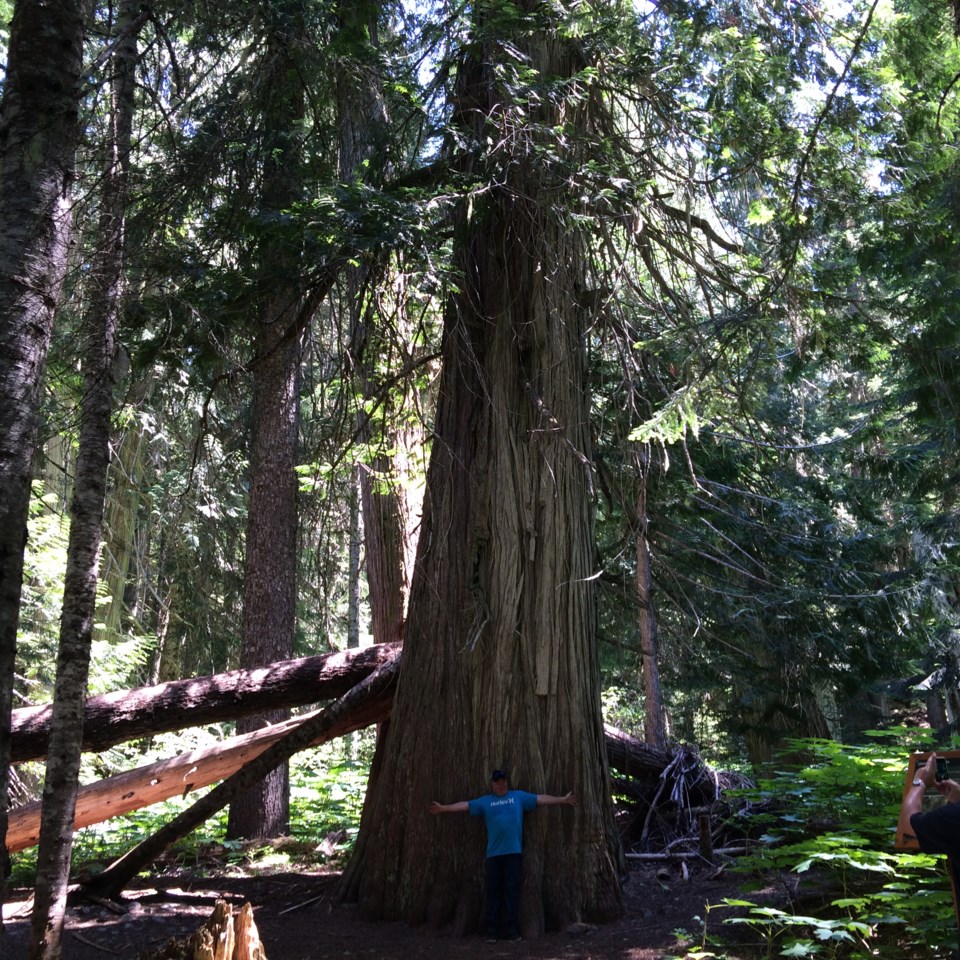The two-hour open house for the Cheakamus Community Forest (CCF) March 29 was very disappointing. Here are some key points that were obviously missing from the presentation:
• Acknowledgement that pandemics such as coronavirus are the result of humanity’s destruction of nature, and it must stop.
• Awareness that not all forests are renewable. Logging old-growth forests is not sustainable—it is extinction.
• Recognition that two of the three CCF partners want to protect old-growth forests. Squamish Nation wants to start protecting the last remaining old-growth stands in its territory and Whistler mayor and council have all said they want to protect old-growth forests.
• Acknowledgement that within the last year A New Future for Old Forests: A strategic review of how British Columbia manages for old forests within its ancient ecosystems has come out, and that the province has committed to implementing its 14 old-growth management strategies to meet society’s demands to maintain ecological values.
• An answer to the question asking if the CCF is logging simply to provide jobs. If yes, then let’s provide them, but in a different way.
• Recognition that old-growth forests burn less readily than younger forests. When the CCF logs old growth, it increases our second growth forests, which increases Whistler’s wildfire risk. At the same time, the Resort Municipality of Whistler has a wildfire hazard reduction program. There was no acknowledgement that these two programs are working against each other.
• Appreciation that forests have intrinsic value for living things; they do not exist to provide value to humans. We heard a lot about the urgency for wildfire hazard reduction to protect the homes of human animals. We did not hear any concern about how many non-human animals will die when we destroy their homes by logging and wildfire hazard reduction.
• Acknowledgement that old growth forests are the most critical areas for carbon storage in B.C.
• Recognition that we need to manage for ecosystem health, not for timber. The notion that the province will revoke forest tenures if not enough trees are logged has been disproven. The door is wide open to challenge outdated rules like the annual allowable cut. It’s been opened by science, the climate emergency and the biodiversity crisis.
• Acknowledgement that forests and ecosystems are so complex that we will never fully understand them. Using the precautionary principle to end old-growth logging is the only moral way to move forward. In other words, where there are threats of serious or irreversible damage, lack of full scientific certainty shall not be used as a reason for postponing measures to prevent environmental degradation.
• Recognition that logging old growth negatively affects mental health in Whistler. Many of us already suffer from eco-anxiety and actions by the CCF makes it worse.
[One positive] about the open house [was the] fellow community members who attended and who also questioned the plan to log old growth. They are one reason for hope. Another reason is that nature is exceedingly resilient and will recover IF we stop actively destroying it.
[As Herb Hammond said:] “We have as much power as we believe we have. If we believe we have no power, it’s a self-fulfilling prophecy. But if we believe we have power, we can change the world.”
We look forward to continuing the discussion.




